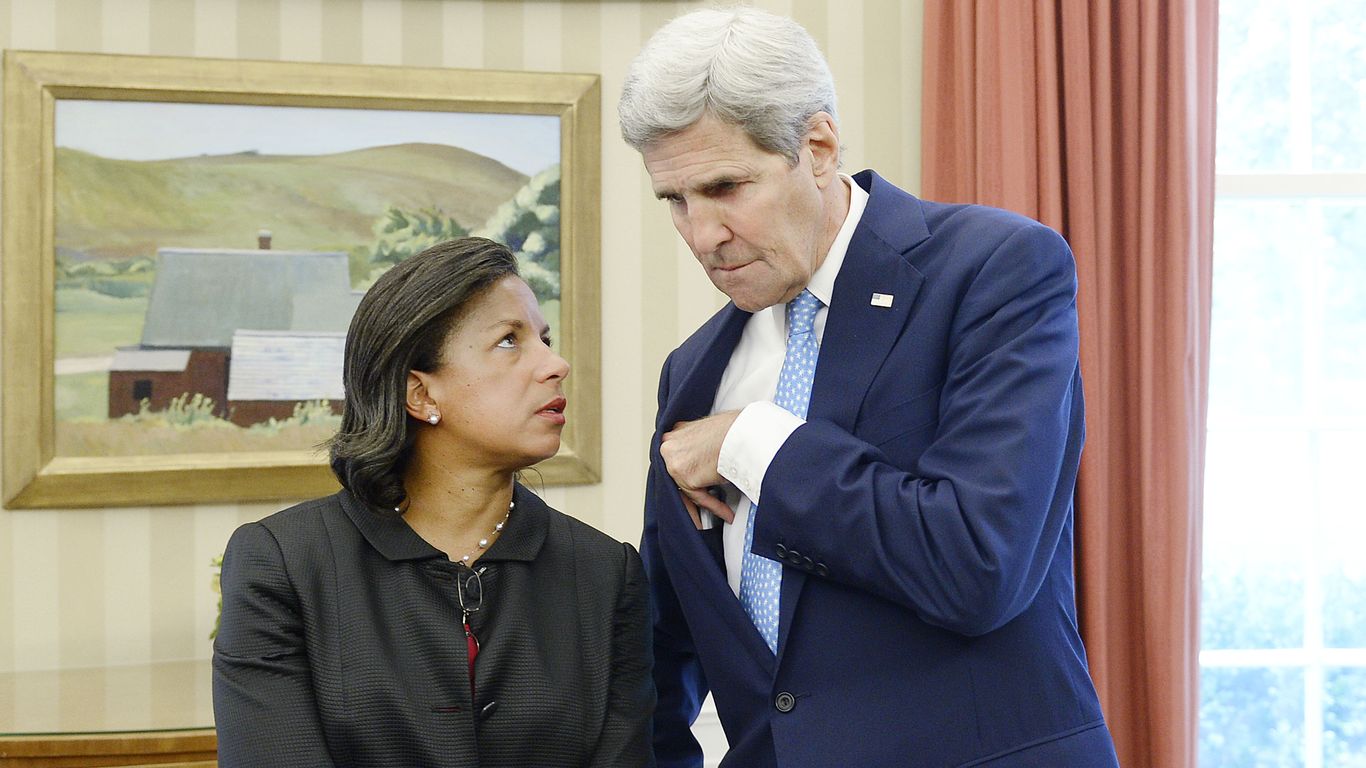Members of Israeli Prime Minister Benjamin Netanyahu’s inner circle are concerned that President-elect Joe Biden is filling his government with veterans of the Obama administration, some of whom have had difficult relations in the past, especially with Iran.
Why it matters: The Biden and Netanyahu governments are on their way to an early confrontation over the nuclear deal with Iran. Several of Netanyahu’s advisers to the Israel National Security Council have complained about the fact that Biden will be surrounded by the “Obama people” – including the architects. of the agreement and some of its most ferocious defenders.
What they are saying: Israel’s outgoing ambassador to Washington, Ron Dermer, told several interlocutors in Washington that he is concerned about the influence that John Kerry and Susan Rice will have on Biden’s foreign policy, according to an Israeli official and a US official.
- Both Kerry and Rice will join the Biden government, but their new positions have little to do with Iran or Israel. Kerry will be Biden’s climate czar, while Rice will head the Internal Policy Council.
- As secretary of state, Kerry had a very tense relationship with Netanyahu, especially with regard to the nuclear deal with Iran and the Palestinian issue.
- As a national security adviser, Rice saw Dermer as essentially a Republican political agent and once joked that she didn’t meet him because he was “too busy traveling to the events of Sheldon Adelson in Las Vegas”.
The big picture: Relations between Barack Obama, Netanyahu and their respective teams were strained, especially during Obama’s second term. Biden’s new team looks a lot like Obama’s back then.
- But while Netanyahu’s advisers are particularly concerned about the return of Rice and Kerry, they have had fewer complaints about new national security adviser Jake Sullivan and Biden’s choice to head the State Department, Tony Blinken.
- A Netanyahu adviser told me that he is less concerned about Kerry and Rice than Wendy Sherman’s expected Biden choice for deputy secretary of state. Sherman was the main US negotiator in the deal with Iran.
Driving the news: Sullivan reiterated on CNN on Sunday that Biden intends to return to the deal if Iran complies again, and then he will try to negotiate a broader deal. But Netanyahu won’t be Biden’s only headache as he tries to implement that policy.
- Iran announced on Monday that it had resumed production of 20% enriched uranium and Tehran has also threatened to expel nuclear inspectors.
- A minister in the Netanyahu government, Tzachi Hanegbi, said on Tuesday that Israel should respond to Iran’s enrichment movement with a military attack on Iran’s nuclear facilities, “because the world is sitting idly by.”
- The other side: The Institute for Policy and Strategy, a study group led by retired Israeli general Amos Gilead, released an article on Sunday calling for a silent dialogue with the Biden government about Iran in order to avoid a public confrontation that could be harmful to Israel.
What is the next: There has still been no contact between the Israeli government and the new Biden government, and it is unclear who will deal with Israel’s involvement in Biden in Iran. One name that has been mentioned is Mossad director Yossi Cohen.
Worthless: A Biden transition official said that Biden has been “one of Israel’s strongest supporters” and that the Biden-Harris government “will not only further strengthen the US-Israel relationship, but will also ensure that it has bipartisan support”. Dermer declined to comment on this story, as did Netanyahu’s office.
Go deeper: The dilemma of the Biden nuclear deal
